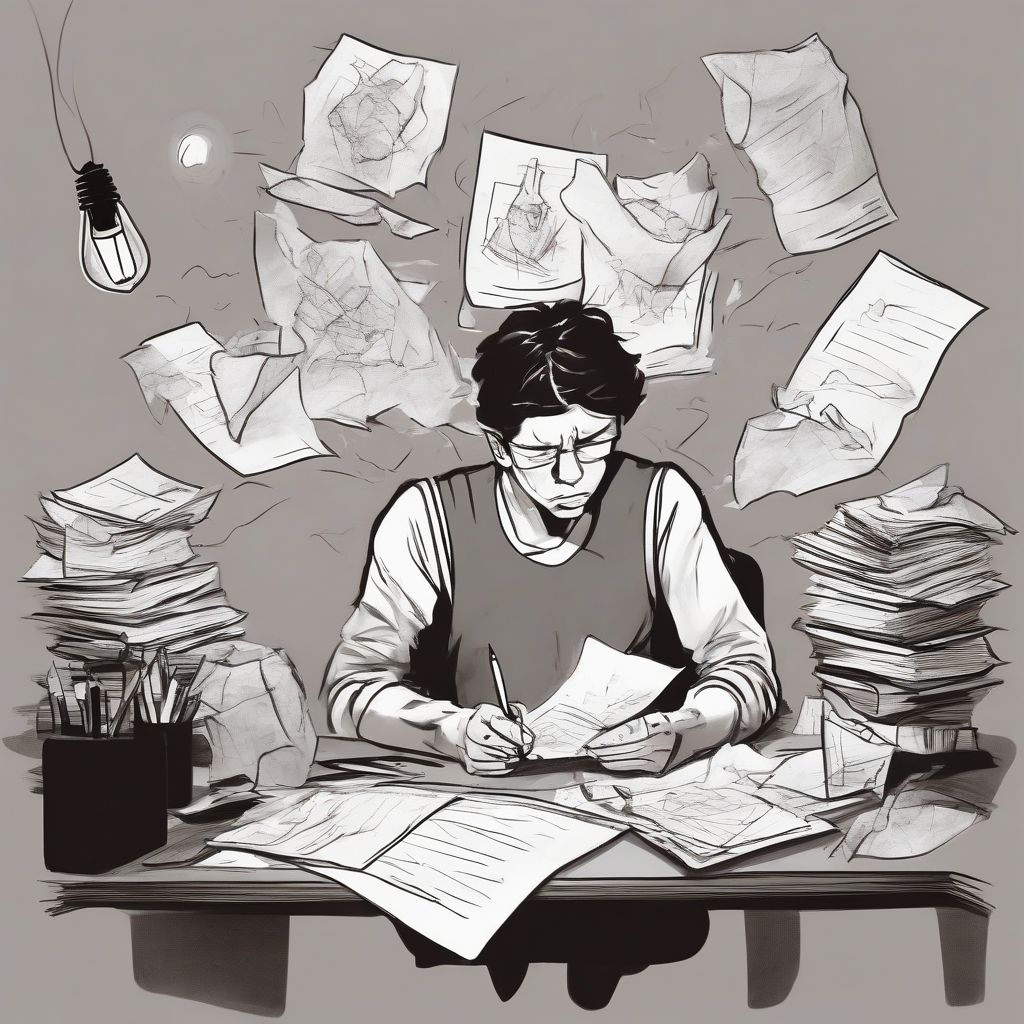Ever felt like your creative well has run dry? Like you’re staring at a blank page, a blinking cursor, or a lump of clay, and inspiration has decided to take an extended vacation? You’re not alone. Every creative, from seasoned artists to budding writers, faces roadblocks in their creative process. But the good news is that these barriers are not insurmountable. Just like a nutritionist helps clients overcome dietary obstacles, we can equip ourselves with techniques to navigate these creative hurdles and unlock our innovative potential.
Understanding the Creative Barriers
Before we dive into solutions, let’s identify some common culprits that stifle creativity:
Fear of Failure
This is perhaps the biggest hurdle. The fear of judgment, criticism, or simply not creating something “good enough” can paralyze us before we even begin. It’s like trying a new recipe and being afraid it will be a disaster. But as any experienced chef knows, experimentation is key!
Perfectionism
While striving for excellence is admirable, perfectionism can be a creativity killer. It sets unrealistic expectations and fosters self-doubt, preventing us from taking risks and exploring new ideas. It’s the equivalent of meticulously measuring every ingredient and stressing over every detail, ultimately losing the joy of cooking.
Lack of Focus and Distractions
In our hyper-connected world, distractions abound. Notifications, emails, and social media constantly vie for our attention, making it challenging to maintain the focus needed for deep creative work. Imagine trying to create a culinary masterpiece while constantly being interrupted by phone calls and text messages!
Procrastination
We all do it. Putting off creative tasks until “the right moment” often means they never get done. This can stem from fear, perfectionism, or simply feeling overwhelmed. It’s like buying all the ingredients for a healthy meal, only to leave them in the fridge until they expire.
Techniques to Break Through the Barriers
Now that we’ve identified the roadblocks, let’s explore some powerful techniques to overcome them:
Embrace Imperfection
Remember, the first draft is just that – a draft. Give yourself permission to create something imperfect. Think of it as a rough sketch or a trial run of your recipe. You can always refine and polish later. As the renowned sculptor Auguste Rodin supposedly said, “The main thing is to be moved, to love, to hope, to tremble, to live.”
Cultivate a Growth Mindset
Embrace challenges as opportunities for learning and growth. View “failures” as valuable feedback, not a reflection of your worth. Just as a nutrition plan requires adjustments along the way, so too does the creative process.
Time Blocking and Dedicated Creative Space
Set aside specific times for creative work and create a distraction-free environment. Turn off notifications, put your phone on silent, and find a space where you can focus. Think of it as creating your personal “creative kitchen,” free from interruptions.
Brainstorming and Idea Generation Techniques
When inspiration feels elusive, try techniques like mind mapping, freewriting, or sketching. Explore different perspectives and allow yourself to think outside the box. It’s like exploring new flavor combinations or experimenting with different cooking techniques.
Break Down Large Tasks
Overwhelmed by a big project? Break it down into smaller, more manageable steps. This makes the task less daunting and allows you to celebrate small wins along the way. Think of it as preparing your ingredients before you start cooking – it simplifies the process.
Seek Inspiration from Diverse Sources
Look beyond your usual sources of inspiration. Explore different art forms, read books outside your genre, listen to different music, or take a walk in nature. Just as a chef might find inspiration in a local farmers market, you can find creative fuel in unexpected places.
Connect with Other Creatives
Join a writing group, attend an art class, or simply connect with fellow creatives online. Sharing ideas, feedback, and encouragement can be incredibly motivating and inspiring. It’s like sharing recipes and cooking tips with other food enthusiasts.
Practice Self-Compassion
Be kind to yourself. Creativity ebbs and flows. Don’t beat yourself up if you’re not feeling inspired every day. Just as you wouldn’t give up on a healthy lifestyle after one cheat meal, don’t abandon your creative pursuits during a lull.
Celebrate Small Wins
Acknowledge and appreciate your progress, no matter how small. Finished a paragraph? Sketched a rough outline? Celebrate those milestones! It’s like savoring the delicious aroma of your culinary creation in progress.
Overcoming Creative Block: A Case Study
Consider the story of Elizabeth Gilbert, author of “Eat, Pray, Love.” She faced a significant creative block after the success of her memoir, feeling immense pressure to replicate its success. She overcame this by focusing on the process, not the outcome, and embracing the joy of writing again. This reminds us that even the most successful creatives face challenges and that perseverance is key.
 Overcoming Creative Blocks
Overcoming Creative Blocks
Conclusion
Overcoming creative barriers is a journey, not a destination. By embracing imperfection, cultivating a growth mindset, and implementing practical strategies like time blocking and brainstorming, you can unlock your creative potential and navigate the inevitable challenges along the way. Remember, just as a healthy lifestyle requires consistent effort and mindful choices, so too does nurturing your creativity. So, embrace the process, experiment fearlessly, and celebrate the joy of creating! Now, share your thoughts! What are your biggest creative challenges, and what techniques have you found helpful in overcoming them?
- Fletcher, Angus (Author)
- English (Publication Language)
- Judkins, Rod (Author)
- English (Publication Language)
- Creative Thinkering: Putting Your Imagination to Work
- Michalko, Michael (Author)
- Michalko, Michael (Author)
- English (Publication Language)
- Hazenberg, Wimer (Author)
- English (Publication Language)
- Adair, John (Author)
- English (Publication Language)
- Neuronswaves (Author)
- English (Publication Language)
- The Original Creative Thinking Journal
- #1 Guided Journal for Creative Thinking (also check out our ALL Ages edition- 13 yrs and up-on Amazon)
- School of Life, The (Author)
- English (Publication Language)










